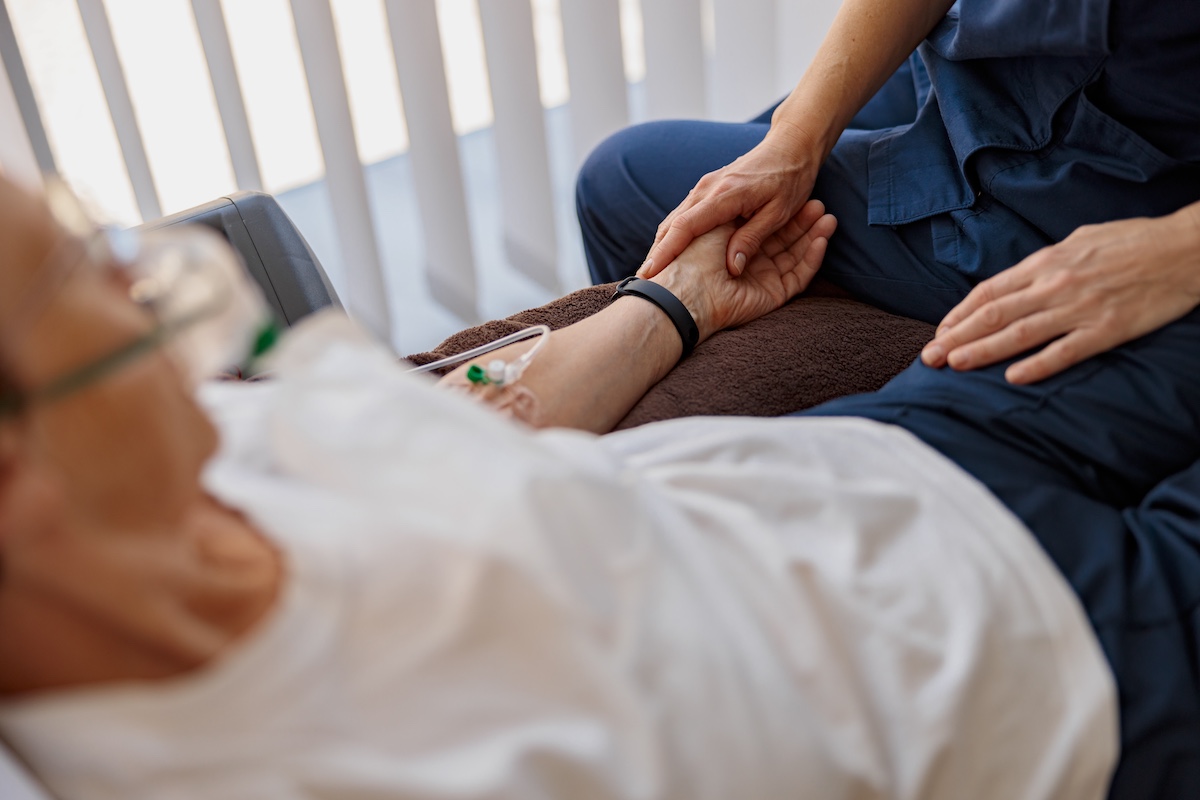Caring for a loved one, especially an aging parent or family member with a serious illness, is one of the most compassionate acts a person can offer. However, the responsibilities of caregiving can quickly become overwhelming.
Between managing medications, coordinating doctor visits, handling household tasks, and providing emotional support, many family caregivers find themselves physically and emotionally drained.
When life gets hectic, it’s easy to put your own needs last — but doing so can lead to burnout, fatigue, and declining health. To be a reliable, loving caregiver, you must also care for yourself. In this blog post, we will explore practical ways family caregivers can prioritize self-care, even in the busiest seasons of life. Many caregivers believe that self-care is a luxury they can’t afford or don’t have time for. In reality, it’s an essential part of maintaining your ability to care for someone else. The Importance of Self-Care for Caregivers
Ignoring your own physical, emotional, and mental health can result in caregiver burnout, which includes symptoms like chronic exhaustion, irritability, depression, and even physical illness.
Prioritizing self-care isn’t selfish — it ensures you can remain strong, patient, and resilient while supporting your loved one. Regularly attending to your well-being can improve your mood, enhance your focus, and reduce stress, ultimately benefiting both you and those you care for. Before you can address your needs, it’s important to recognize when you might be reaching a breaking point. Common signs of caregiver burnout include: Constant fatigue, regardless of how much rest you getRecognizing the Signs of Caregiver Burnout
Increased irritability, anxiety, or sadness
Withdrawal from social activities or loved ones
Trouble sleeping or changes in appetite
Feeling hopeless or resentful about caregiving duties
If you notice these signs, it’s time to reassess your self-care routine and seek additional support. When your days are packed with appointments and responsibilities, self-care needs to be realistic and accessible. Here are some manageable, effective self-care strategies for caregivers: Accept that you can’t do everything perfectly, and it’s okay to ask for help. Prioritize what’s most important each day and let go of tasks that can wait. Creating a daily to-do list with just three top priorities can help you stay organized without becoming overwhelmed. Even five or ten minutes of downtime can recharge your mind and body. Use small breaks throughout your day to sit in silence, take a few deep breaths, stretch, or step outside for fresh air. These short pauses are crucial for maintaining your emotional balance. Isolation is a common struggle for caregivers, especially when life gets hectic. Make a conscious effort to stay connected with friends, family, or support groups. Even a quick phone call or text conversation can lift your spirits and remind you that you’re not alone. Sleep deprivation can worsen stress and health problems. Aim for at least seven hours of rest each night, and take short naps during the day. Create a calming bedtime routine — dim the lights, put away screens, and listen to soothing music or read a book to help wind down. When you’re busy, it’s easy to skip meals or rely on convenience foods. Focus on quick, nutritious meals and snacks that support your energy and immunity. Keep easy, healthy options on hand like fresh fruit, nuts, yogurt, and whole-grain snacks to fuel your body throughout the day. Physical activity is a proven stress reliever, and it doesn’t require a lengthy gym session. Gentle stretching, a brisk walk, or even a short online yoga video can reduce tension and improve your mood. Aim for at least 10-15 minutes of movement daily to support both your physical and mental health. Mindfulness exercises such as deep breathing, guided imagery, or meditation can lower stress levels and increase your resilience to challenges. Try setting aside a few minutes each morning or evening to practice mindfulness, or use smartphone apps for guided meditations designed for caregivers. One of the most important acts of self-care is recognizing when you need assistance. Accepting help doesn’t mean you’re failing — it means you’re taking responsible steps to protect your health and well-being. Practical Self-Care Tips for Busy Caregivers
1. Set Realistic Expectations
2. Schedule Short Breaks
3. Stay Connected with Others
4. Prioritize Sleep and Rest
5. Nourish Your Body
6. Move Your Body
7. Practice Mindfulness and Relaxation Techniques
Know When to Ask for Help
Options for additional support include: Enlisting other family members or friends to help with errands, meals, or visits
Hiring in-home care providers for temporary respite care
Joining a caregiver support group for emotional encouragement and shared resources
Speaking with a counselor or therapist for professional guidance
Many hospice organizations and community services offer resources specifically for caregivers, including respite care, education, and emotional support. Integrating self-care into your busy life requires intentionality. Consider creating a simple self-care routine tailored to your schedule and preferences. For example: Morning: Stretch, drink a glass of water, and take five deep breaths before starting the day.Create a Self-Care Routine
Midday: Take a 10-minute walk or stretch, have a healthy snack, and check in with a friend.
Evening: Write down three things you’re grateful for, practice a mindfulness exercise, and unwind with a calming activity before bed.
A daily self-care routine, even with small acts of kindness toward yourself, can improve your resilience and overall outlook. Finally, remember to be kind to yourself. Caregiving comes with difficult emotions, occasional frustrations, and moments of guilt or resentment. The Value of Forgiveness and Compassion
It’s normal to experience these feelings, especially when life gets overwhelming. Give yourself grace and recognize that you’re doing your best in a challenging situation.
Celebrate small victories, allow yourself to feel a range of emotions, and focus on what you can control. The more compassion you extend to yourself, the better equipped you’ll be to care for your loved one. Life as a family caregiver is demanding, emotional, and at times exhausting. But even amid hectic schedules and endless responsibilities, self-care remains a vital part of sustaining your strength, patience, and health. Final Thoughts
By making intentional choices to rest, nourish your body, stay connected, and seek help when needed, you can continue to be a loving, reliable caregiver while safeguarding your own well-being.You matter just as much as the person you’re caring for. Prioritizing yourself isn’t a luxury — it’s a necessity.


